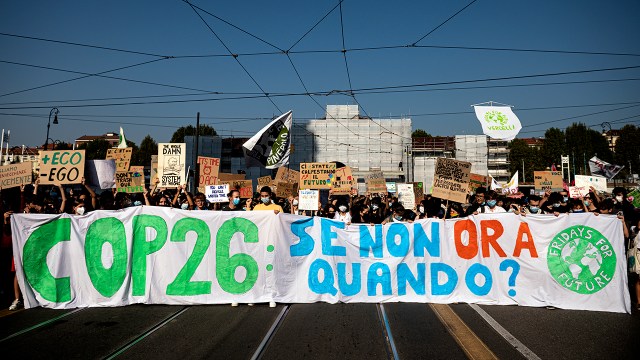
President Joe Biden is in Europe this weekend to attend COP26, a United Nations conference on climate change. The summit comes after a UN panel reported in August that urgent measures are needed to avoid catastrophic effects from climate change.
Recent Pew Research Center surveys have documented how people around the world view the issue of climate change and international responses, as well as how they see policy decisions such as Biden’s decision to rejoin the Paris Agreement. Ahead of COP26, here’s a summary of key findings from these and other surveys:
- Throughout Donald Trump’s presidency, publics around the world held the United States in low regard, and many of his policies were unpopular globally. Those views rebounded early this year: In a spring 2021 survey, more than six-in-ten adults in each of 16 publics surveyed said they had confidence in Biden to do the right thing in world affairs. Looking at 12 nations surveyed both this year and in 2020, a median of 75% expressed confidence in Biden, compared with 17% for Trump last year. Biden’s decision to recommit to the Paris climate agreement was also well-received. In the same 2021 global survey, a median of 85% in the publics surveyed approved of the U.S. rejoining the accord. In Europe, about nine-in-ten or more across six surveyed countries favored the move, with respondents in the Netherlands, Germany and the United Kingdom also broadly supportive. Roughly eight-in-ten or more also supported the decision in Canada and the Asia-Pacific region.
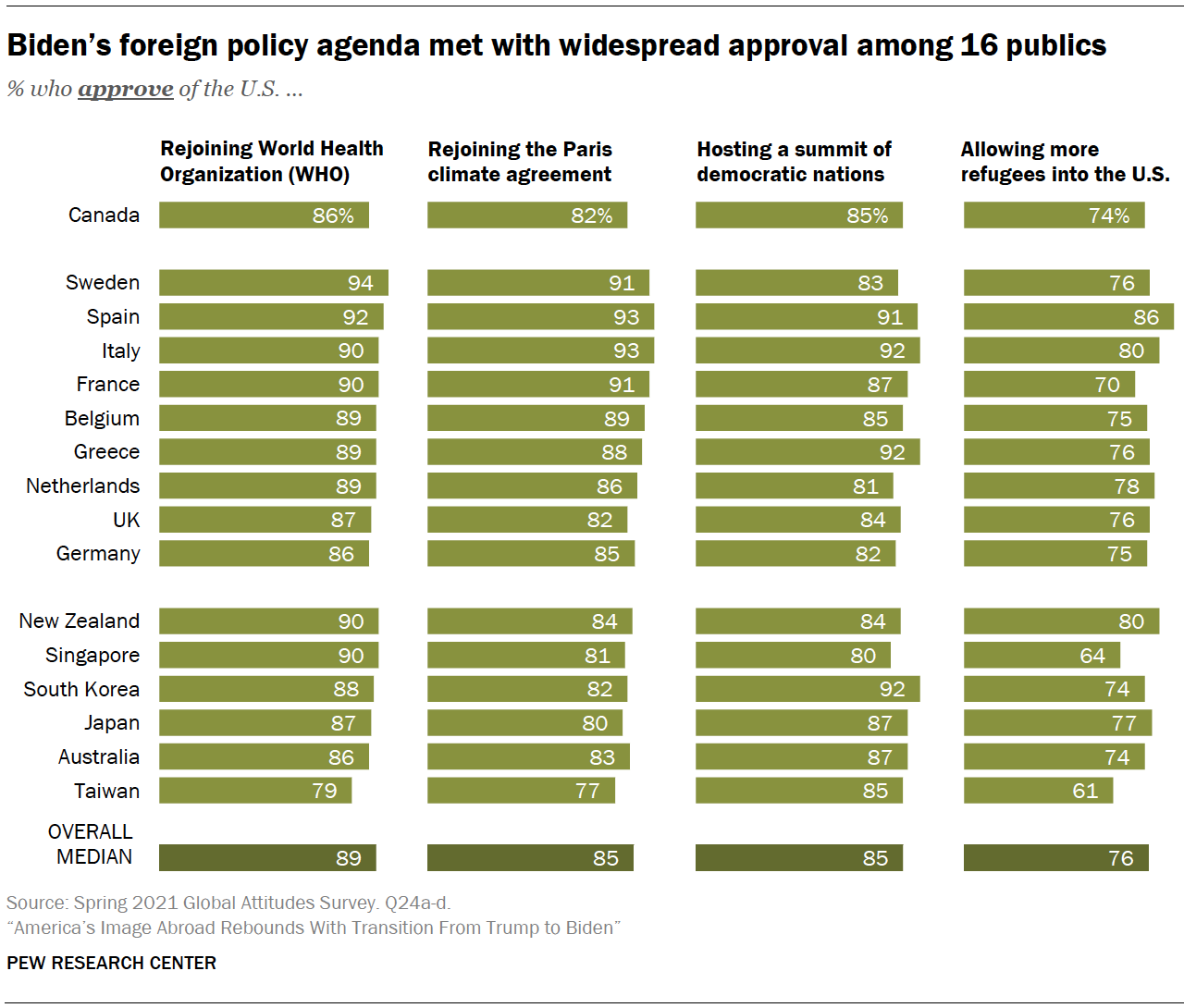
- In the same survey, people around the world expressed widespread concern about the personal impact of global climate change. A median of 72% said they had at least some concern that they would be personally harmed by climate change in their lifetimes; far fewer said they were not too or not at all concerned (19% and 11%, respectively). The share of adults who said they were very concerned that climate change would harm them personally ranged from a high of 57% in Greece to a low of 15% in Sweden. A median of 80% across 17 publics said this spring that they would be willing to make at least some changes to their lives to reduce the effects of climate change. By comparison, a median of only 19% said they would be willing to make a few changes or no changes at all. The share willing to make a lot of changes ranged from 62% in Greece to 8% in Japan. In North America, about three-quarters or more of both Canadians (82%) and Americans (74%) said they were willing to make at least some changes to help reduce the effects of global climate change.
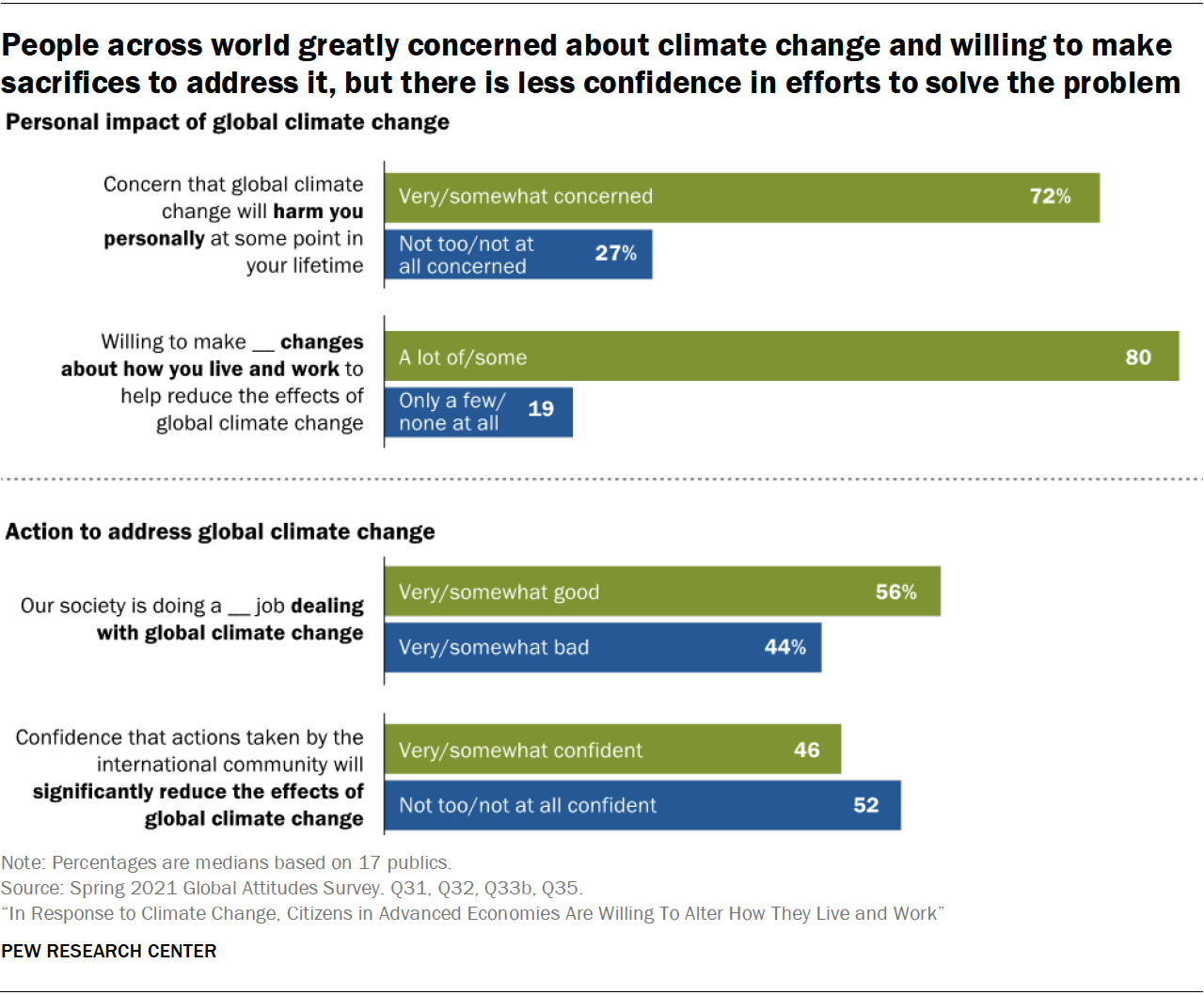
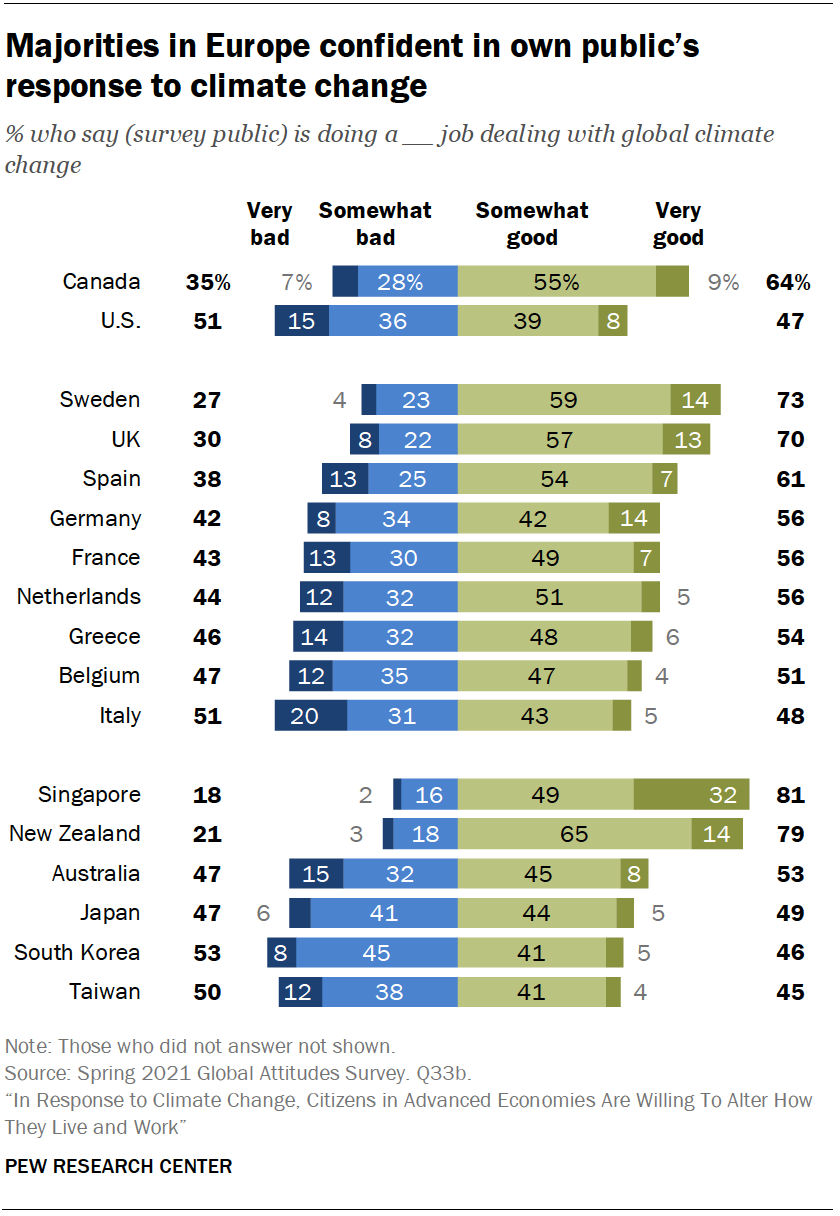
- When asked to reflect on how their own society was handling climate change, respondents gave mostly positive answers. Around half or more in most places surveyed said their society was doing at least a somewhat good job, with a median of 56% saying this across 17 advanced economies. By comparison, a median of 44% said their own society was doing a very or somewhat bad job. In most of the European publics surveyed, majorities said they believed their nation’s climate change response was at least somewhat good. Around eight-in-ten in Singapore and New Zealand said their publics were doing a good job – the highest levels among all places surveyed. Adults in the other Asia-Pacific publics surveyed were more circumspect; about half or fewer said their society was doing a good job.
- As of this past spring, Americans were split on how the U.S. is dealing with climate change: 47% of adults said the country was doing a very or somewhat good job, while 51% said it was doing a very or somewhat bad job. Conservative Americans were 41 percentage points more likely than their liberal counterparts to say the U.S. was doing a good job dealing with climate change. Across 17 places surveyed by the Center in the spring, a median of only 33% of adults said the U.S. was doing a somewhat good job on climate change, and a median of just 3% expressed they believed the U.S. was doing a very good job. In Europe, most adults said the U.S. was doing a bad job of addressing climate change, including 75% of Germans and Swedes. And at least a quarter in all European nations surveyed – with the exception of the UK and Greece – said the U.S. was doing a very bad job.
- A median of only 46% across the 17 publics polled said they were confident that actions taken by the international community would significantly reduce the effects of climate change. A median of 52% were not confident these actions would reduce the effects of climate change. Among Americans, 54% were not confident in the international community’s response to the climate crisis. Those with a favorable view of the UN were more likely to express confidence than those with an unfavorable view that actions taken by the international community would significantly reduce the effects of climate change. This difference was greatest in the U.S., where 61% of adults with a favorable view of the UN said international action would significantly reduce the effects of climate change, compared with just 22% among those with an unfavorable view of the organization.
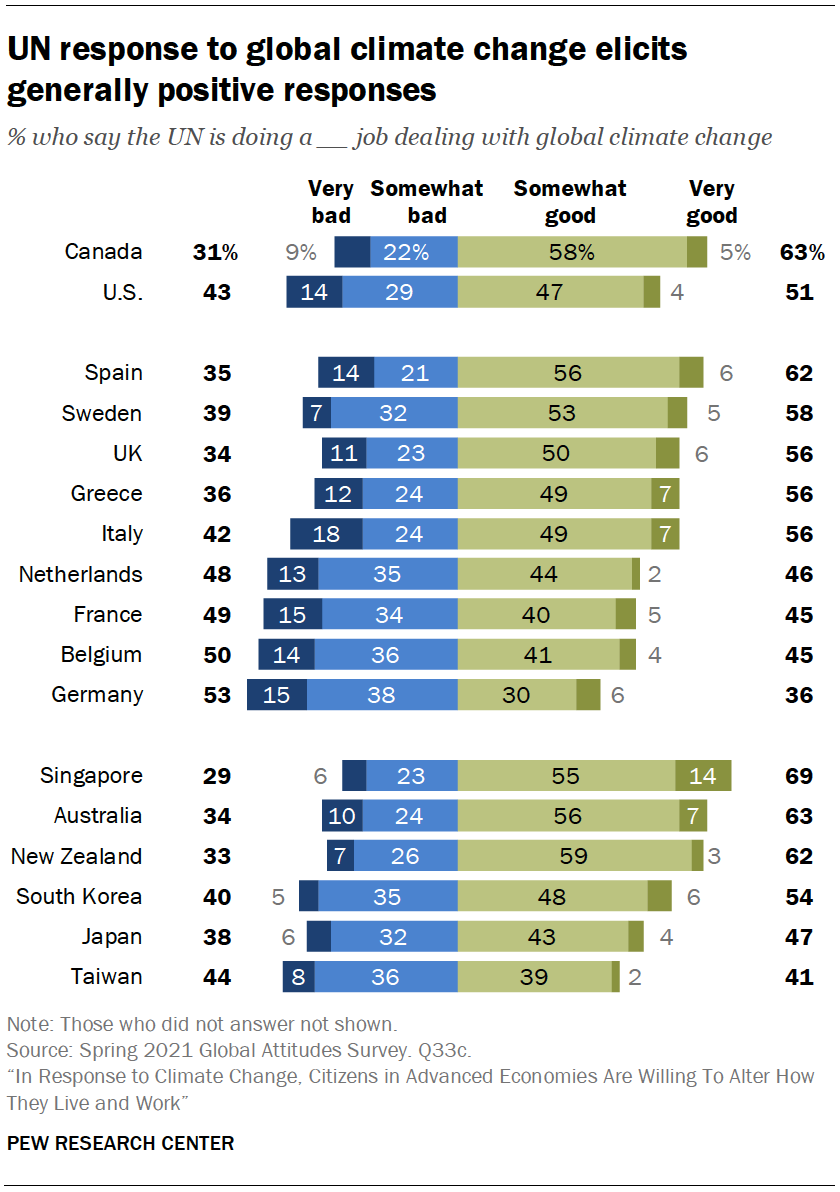
- More than half of adults in most publics said the UN response to climate change was somewhat or very good. A median of 49% across all publics surveyed said that the UN’s actions dealing with global climate change were somewhat good, and a median of 5% said the actions were very good. About half (51%) of those in the U.S. said the UN’s efforts were good, while 43% of Americans said the UN was doing a bad job. In Europe, majorities in Spain, Sweden, the UK, Greece and Italy expressed approval of how the UN was dealing with climate change.
